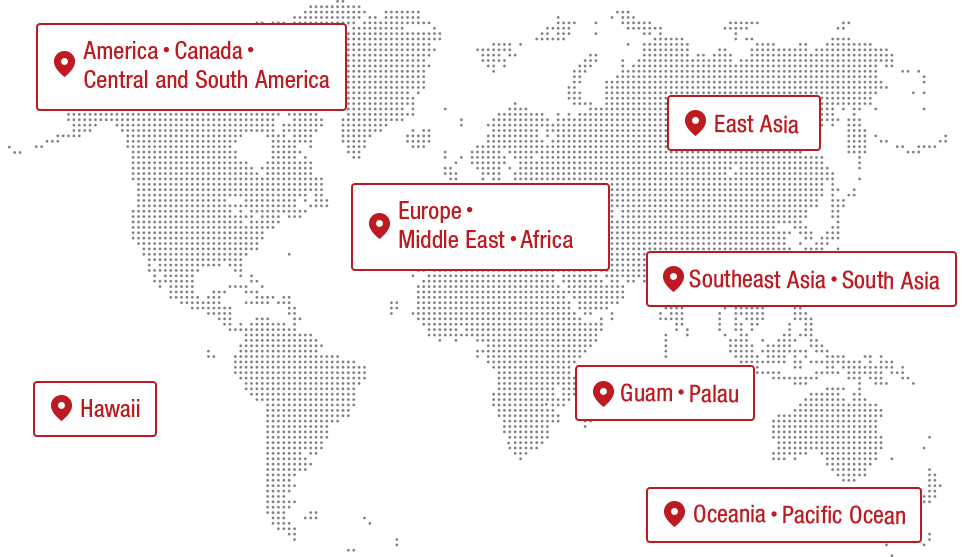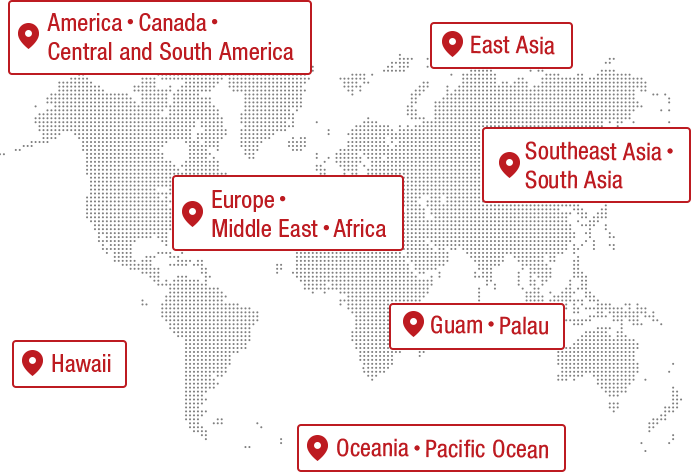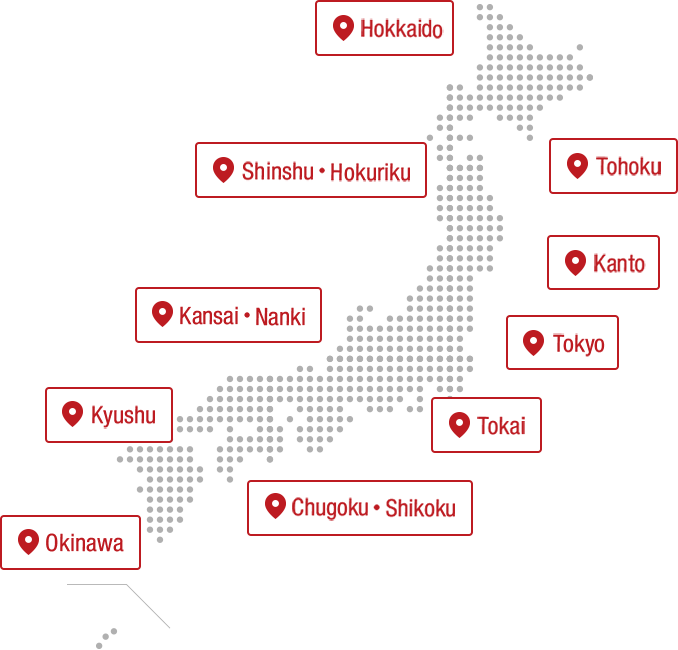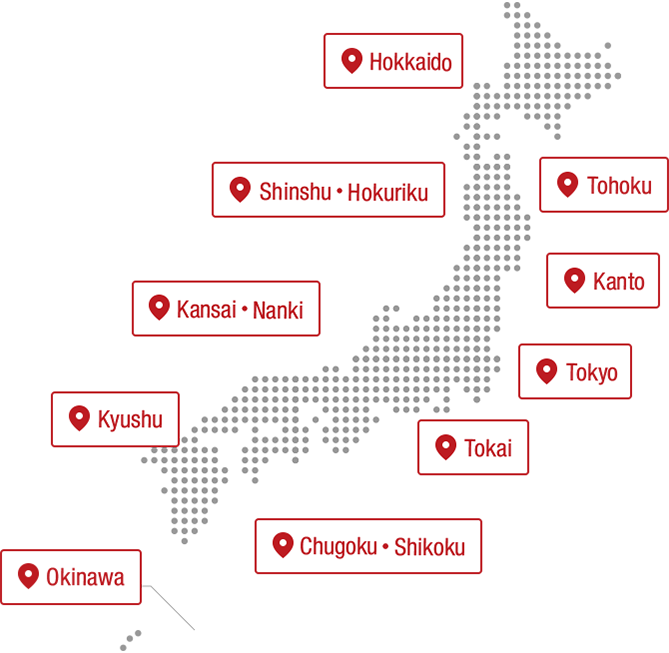Maokong, the home of Muzha Tieguanyin in Taipei City
Tea can be broadly classified as one thing, but it has many different characteristics. High mountain tea, which is cultivated in high-altitude mountainous areas such as Alishan, and Oriental Beauty tea, which is popular for its taste similar to black tea, are familiar brands in Japan. These teas can be enjoyed easily at tea houses in town without having to travel to the tea-producing areas.

Tea plantations in Taipei City's Muzha District
In fact, within Taipei City, there is a famous tea-growing area called Muzha District. Maokong, the center of the area, is a tea village bustling with Taipei residents who come on weekends to chat over tea.

Tieguanyin tea produced in the Muzha area
The tea produced in the Muzha area is a strongly fermented and roasted Tieguanyin tea (oolong tea) made using the traditional Tieguanyin method. Maokong is home to many tea houses that serve all kinds of tea, including Tieguanyin tea produced in the area.
Easy access from central Taipei! How to get to Maokong
When you think of tea villages, you might imagine them being located in nature-rich suburbs that are inaccessible by public transportation, and are a hurdle for tourists. However, Maokong is located in an area that can be reached in about an hour from central Taipei using the MRT and cableway (or bus).
Using the EASY CARD, a rechargeable transportation card familiar to travelers in Taipei, you can get there without having to make a reservation for an express train, so you can experience a short trip like an advanced traveler without having to worry about language.

Maokong Gondola Crosses Multiple Valleys
Take the MRT to Zoo Station. Once you arrive at the station, walk for about 5 minutes to the cable car station. The cable car to Maokong crosses several valleys, so you can enjoy a 30-minute aerial walk of about 4 km.

The ropeway has regular cabins and crystal cabins with skeleton floors. The crystal cabins are particularly popular and there are often long queues on the outbound trip from Zoo Station, but on the return trip from Maokong Station you can usually get on without any hassle, so if you want to ride it, it's worth giving it a try on the way back.

Maokong Ropeway Station
Around the Maokong Cable Car Station, there are numerous tea houses, cafes, tea fields, and walking trails. The tea houses vary in style, with some offering panoramic views of Taipei 101 and the tea fields. Some shops have only modest signs along the road, and feel like a path leading into the forest. Find your favorite one!
Enjoy tea culture at a hideaway teahouse
About a 25-minute walk from the Maokong cableway station (or less than 10 minutes by bus), you'll come across a storybook-like tea house amidst the tea fields and lush forests.

There are many tea houses hidden away from the main streets.
"Yogetsu" means "inviting the moon." We walk along an approach that gives the feeling that we will be able to spend a tasteful time.

"Yogetsu Tea House" nestled in the forest
"Yayue Tea House" is a tea house that is open 24 hours a day, 365 days a year. Since the ropeway and buses are not open 24 hours a day, it is mostly Taipei people who come here to enjoy tea in the middle of the night. I can imagine the scene of people chatting and enjoying tea while gazing at the moon until late into the night.

In addition to indoor seating, the restaurant has multiple areas that make use of the natural terrain, so you can choose your preferred seat. Of course, we recommend the outdoor seats, where you can enjoy forest bathing and the view of the tea fields. In winter, the seats are covered with plastic, so you won't have any problems keeping out the cold.
How to order at Maokong Tea House
Yaoyue Tea House has a Japanese menu and detailed instructions on how to order, so you won't be confused. In addition to the cost of the tea leaves, you will also need to pay for hot water for the number of people, which is unfamiliar in Japan (this varies depending on the time of day, but is 70-120 New TWD per person *As of December 2023, this is approximately 320-555 yen per person).
Once you're seated, write down the number of people, the tea leaves you would like, and your food order on the receipt, then pay at the counter at the entrance. After a while, a tea set will be brought to your table. We recommend the "Muzha Tieguanyin" tea leaves, which are grown locally.

Tea set
Hot water is drawn at the hot water supply spot and kept hot by a heater on the table. The price remains the same no matter how many times you draw hot water. While it is not recommended to use boiling water for the popular Japanese teas Gyokuro and Sencha, oolong tea has a more fragrant aroma when brewed with boiling water.
The first brew of Muzha Tieguanyin has a particularly strong aroma, while the second and third brews have a richer flavor, so pay attention to the changes in aroma and flavor with each brew. You can brew about five brews with one batch of tea leaves, so depending on the number of people, you will often have leftover tea leaves. You can put the leftover tea leaves in the tin they came in and take them home.

Instructions for brewing delicious tea will be provided along with the menu, so try brewing it by following the instructions. We recommend filling the teapot with hot water beforehand to warm it thoroughly.

Muzha Tieguanyin has a long-lasting, rich, roasted aroma. We recommend enjoying the first brew with a strong aroma in a teacup (right, a tea utensil for enjoying the aroma).

"Tea oil and bamboo shoots stew"
Not only tea, but also a wide variety of dishes using tea are available. The "Tea oil and bamboo shoot stew" is a dish that stimulates the appetite with its aroma similar to sesame oil. Other dishes that can be enjoyed include egg rolls and xiaolongbao dumplings made with tea leaves.
No matter how delicious the tea is, it is a lot of work to brew five cups of tea two or three times. If you want to enjoy the tea at Maokong Tea House, it is a good idea to visit with the intention of enjoying not only tea but also a meal.

From Maokong, you can get a panoramic view of downtown Taipei. It's nice on a sunny day, but the cloudy weather and drizzle that moistens the tea fields are also attractive as they create a somewhat extraordinary sight. The time when you can enjoy the night view seems to be popular among local young people.
A half-day short trip that will make you feel like an advanced traveller
Maokong is a place where you can experience tea culture in the midst of nature. It's not just a tourist spot, it's also the birthplace of Muzha Tieguanyin, so you can enjoy an authentic tea house. If you're visiting Taipei for the umpteenth time, why not add a short trip to experience the city on a deeper level?
Maokong Gondola
| Operating hours | : | Weekdays: 9:00-21:00 Holidays 9:00~22:00 |
|---|---|---|
| Days when service is suspended | : | Mondays (except the first Monday of each month, but operates on public holidays), December 31st *Other irregular suspensions may occur. |
| web | : | https://m.metro.taipei/gondola/jp.html |
Yaoyue Tea House
| address | : | No.6, Ln. 40, Sec. 3, Zhinan Rd., Wenshan Dist., Taipei City 116 |
|---|---|---|
| phone | : | +886-2-2939-2025 |
| Opening times | : | 24hours |
| Closed Day | : | Open all year round |
| web | : | https://yytea.com.tw/ |
Related articles
*This article was partially updated on September 2, 2025.
The contents published are accurate at the time of publication and are subject to change.














